Postdoc recognized by the American Society of Parasitologists A...


Postdoc recognized by the American Society of Parasitologists A...
From the Coastal Plain to the Black Belt, Alabama cattle producers are utilizing forage systems to their advantage to meet the challenges of modern agriculture. Alabama ranks 17th nationally in beef cattle, according to the Alabama Cattlemen’s Association. Alabama...
As spring planting shifts into high gear in farmers’ fields throughout the Southeast, few agricultural operations come close to matching the diversity of crops and locations as the outlying units of the Alabama Agricultural Experiment Station at Auburn University....
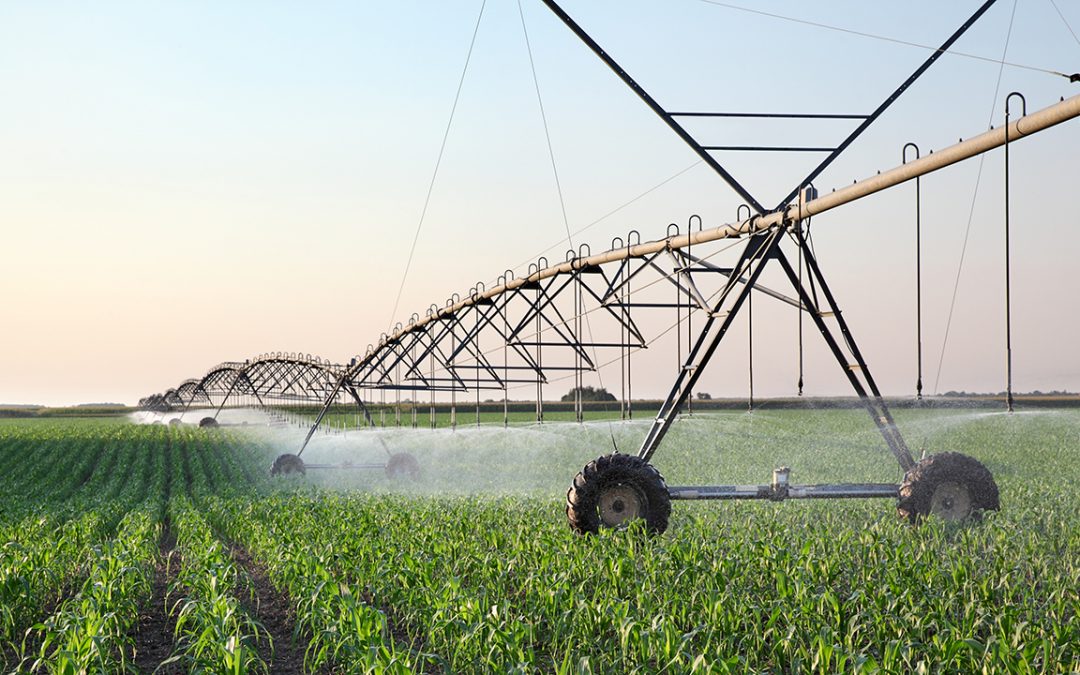
New model to help farmers make better investment decisions By Danielle Lunny Alabama farmers considering investing in irrigation equipment will soon have a free,...
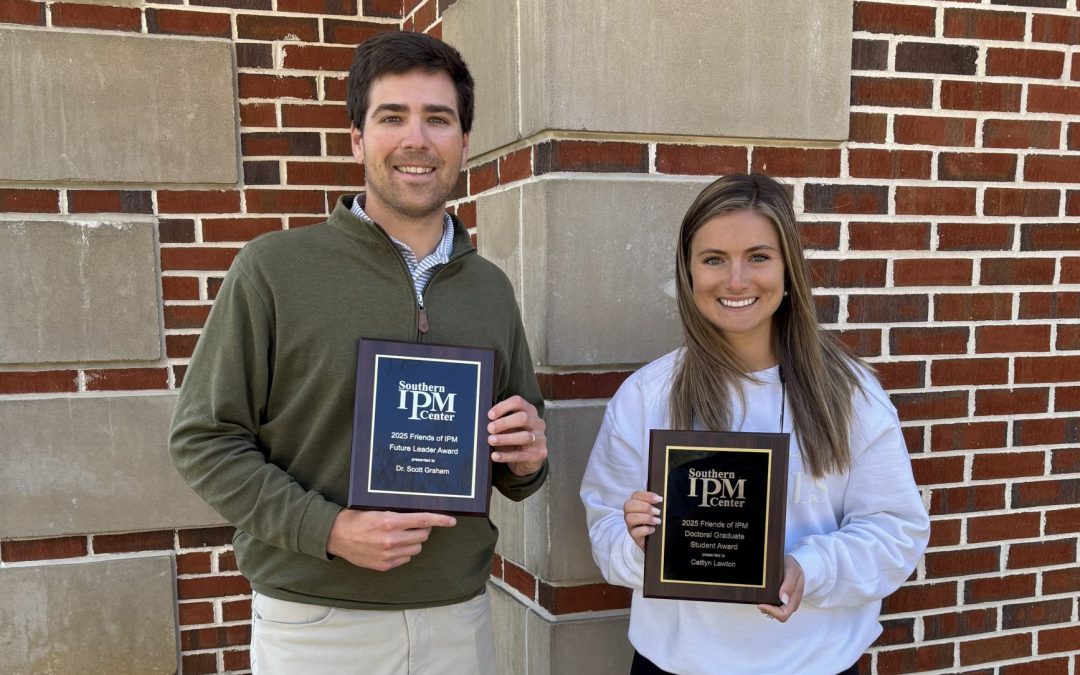
Auburn University graduate students and one faculty member rose above and beyond for this year’s Southern Integrated Pest Management (IPM) Awards. For the first time,...
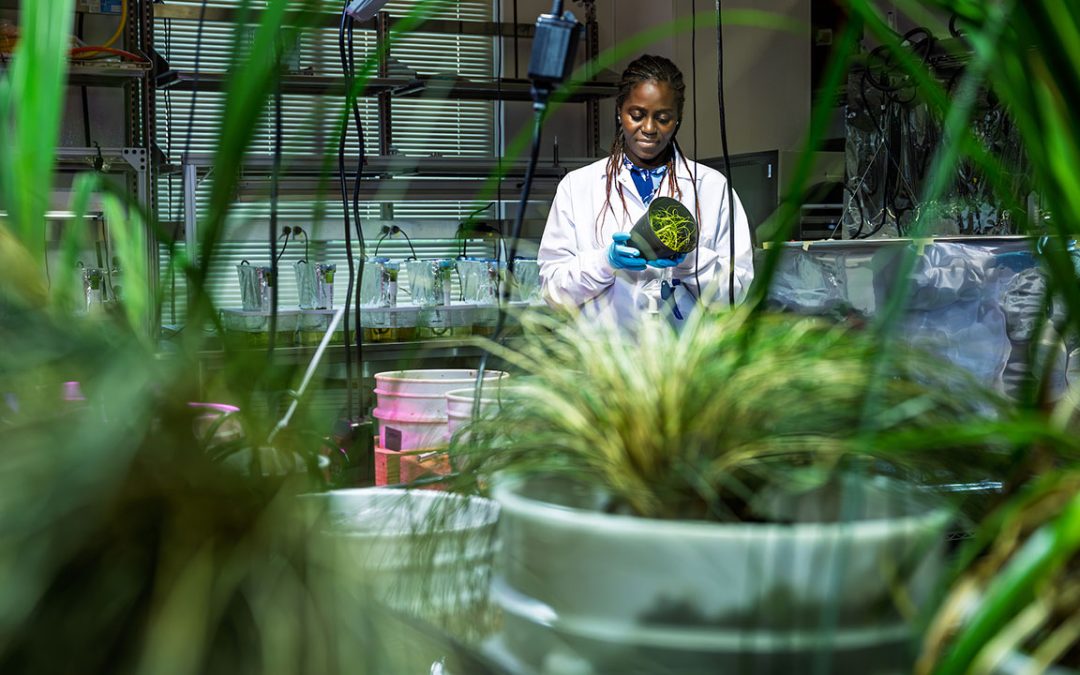
By Amy Weaver Contrary to what the name might suggest, the work currently happening in the Green Infrastructure Lab at Auburn has nothing to do with green-colored roads...
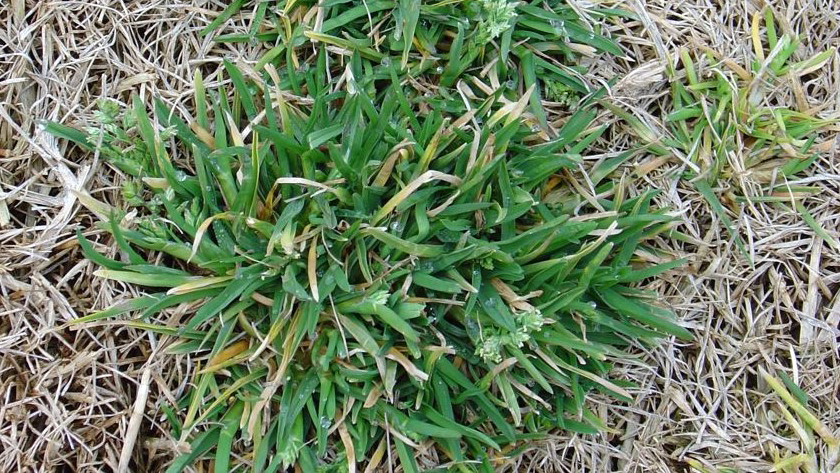
A team of university scientists from across the U.S. is waging a nationwide offensive against a dastardly weed that the turfgrass industry in Alabama and beyond deems Enemy No. 1.
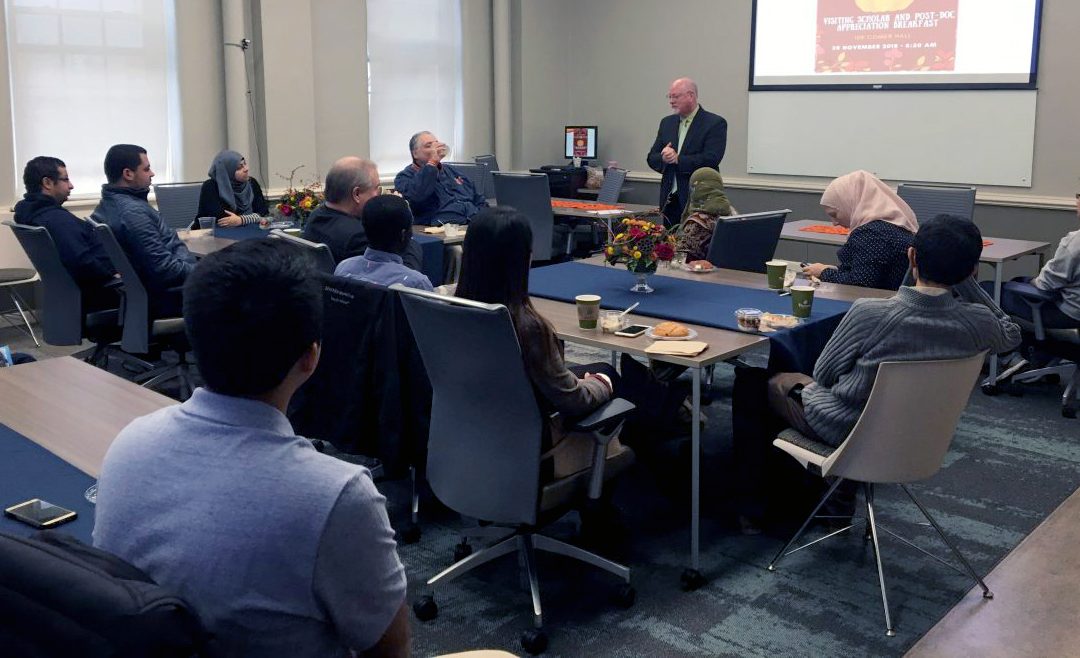
The College of Agriculture held its inaugural “ThanksforGiving to AU research” breakfast on Nov. 20 to recognize visiting scholars and postdoctoral researchers and their contributions to the college.
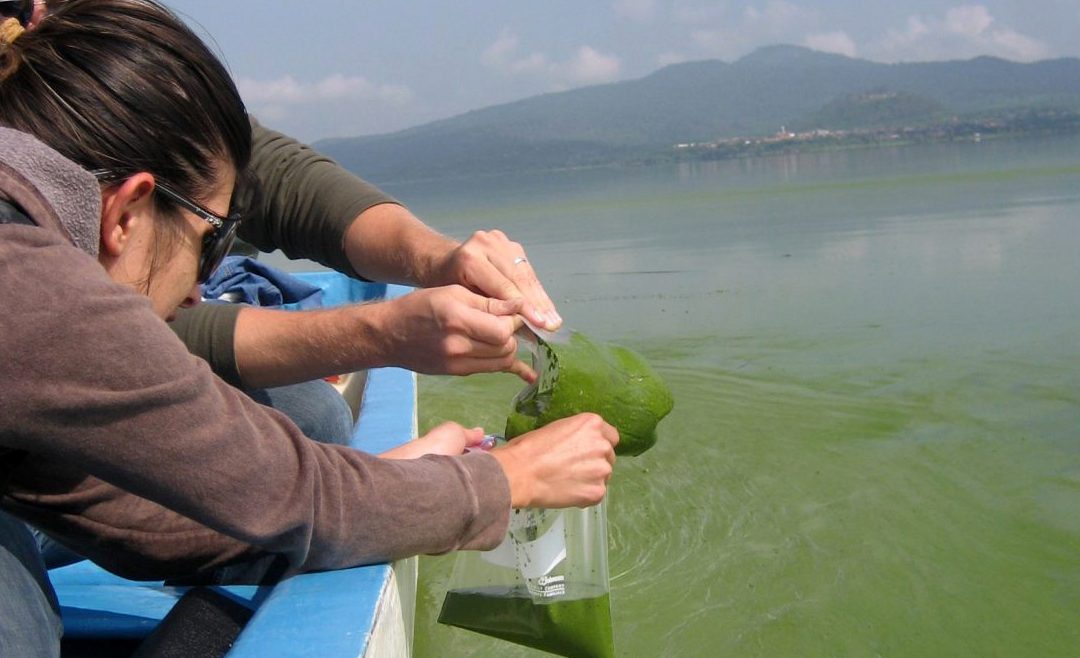
Auburn University aquatic ecologist Alan Wilson and a team of biological, molecular and environmental scientists from three other U.S. institutions are taking on toxic cyanobacteria, also called blue-green algae or pond scum, in a five-year, $2 million National Science Foundation project.
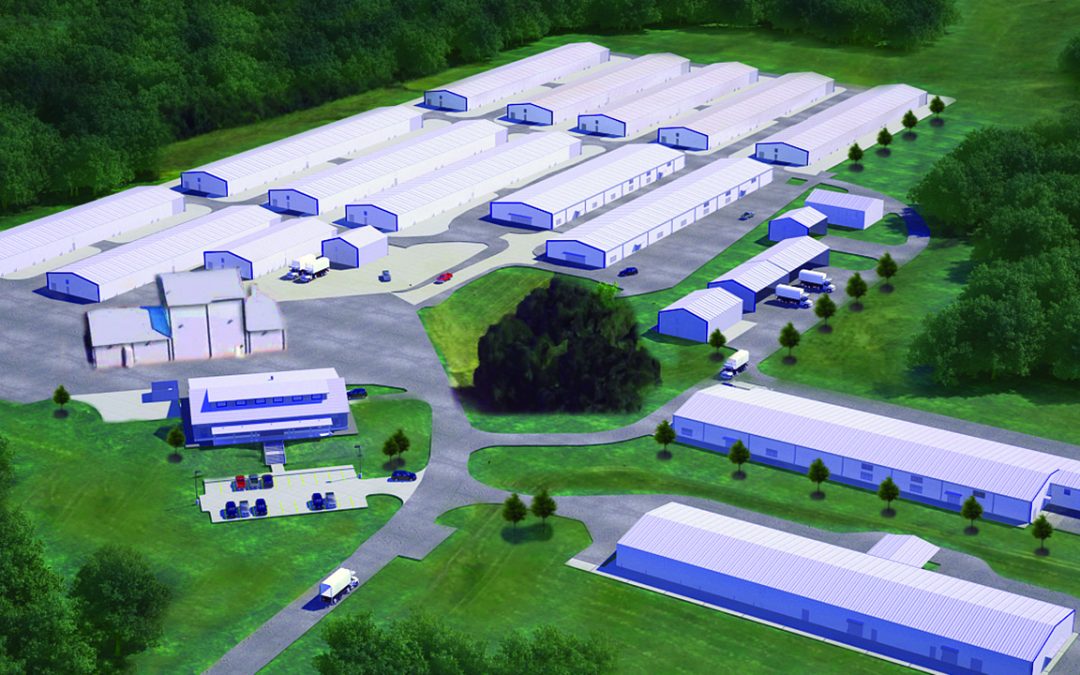
Auburn University’s Board of Trustees has cleared the way for completion of the multi-unit Charles C. Miller Jr. Poultry Research and Education Center on the north Auburn campus, beginning with construction of an 18,800-square-foot poultry processing plant on the 30-acre site.
The project will create a bio-based fuel additive that can be blended with diesel fuel to reduce soot and greenhouse gas emissions and yield cleaner engine operation in cold-weather conditions.
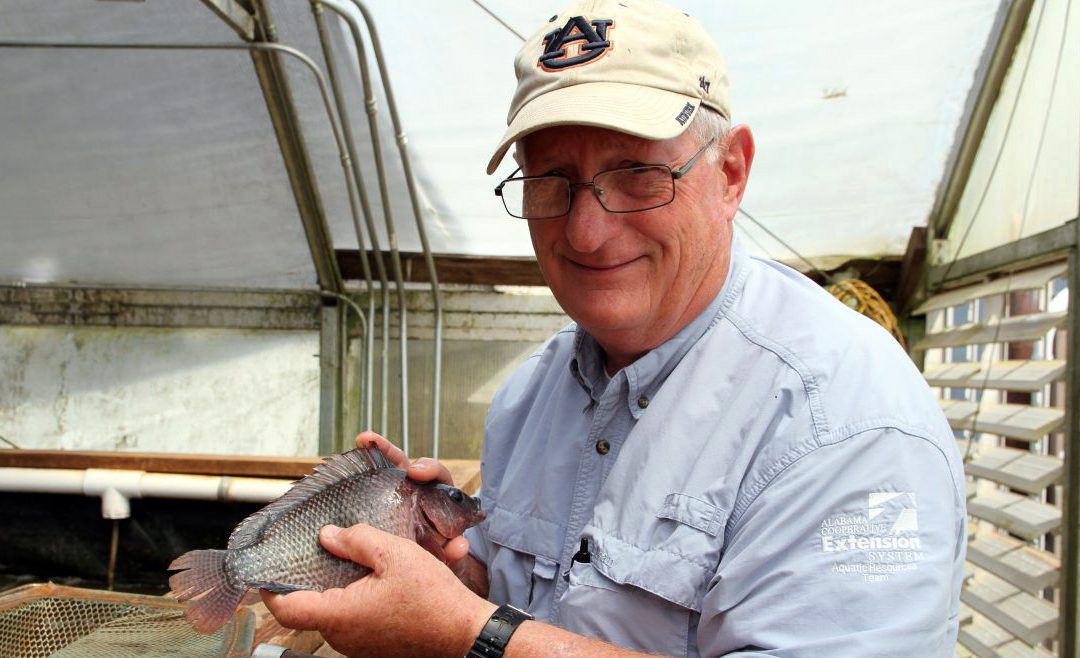
Auburn University’s Aquaponics Working Group has a new vision for U.S. aquaculture, one that includes far more predictability and efficiency than today’s timeworn models of commercial fish production.
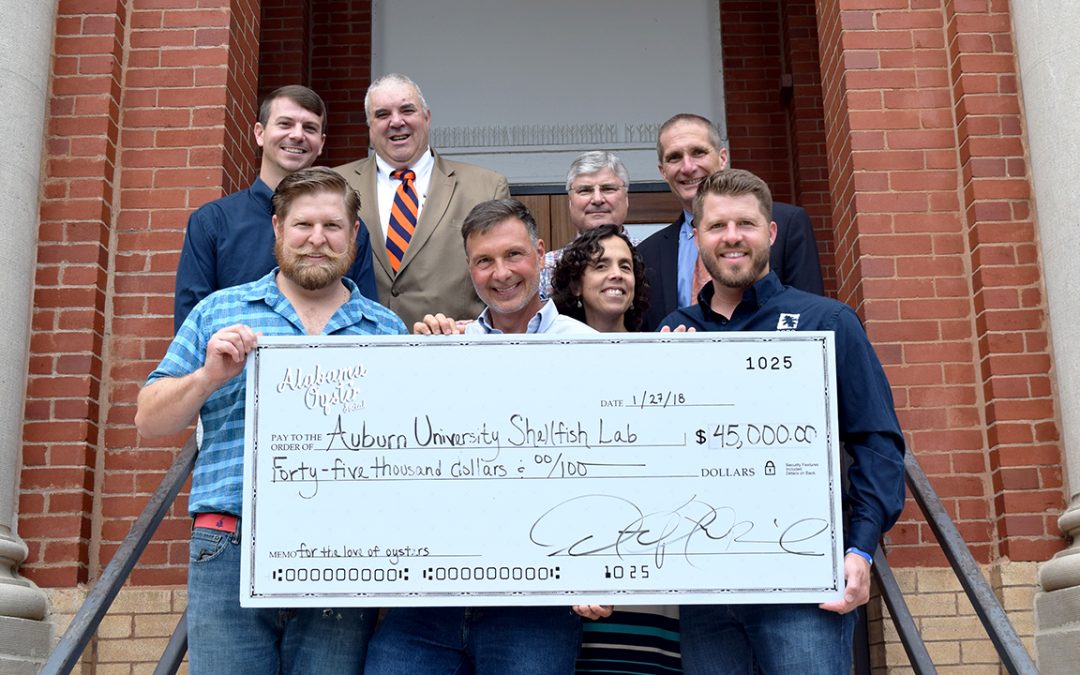
A 32-foot raw bar boasting 5,000 premium farm-raised oysters drew hundreds of oyster lovers to Ag Heritage Park earlier this year for the 2018 Alabama Oyster Social. In addition to emptying all 5,000 half shells, attendees also raised $45,000 to support Auburn University’s Shellfish Lab at Dauphin Island and, in turn, Alabama oyster farmers.
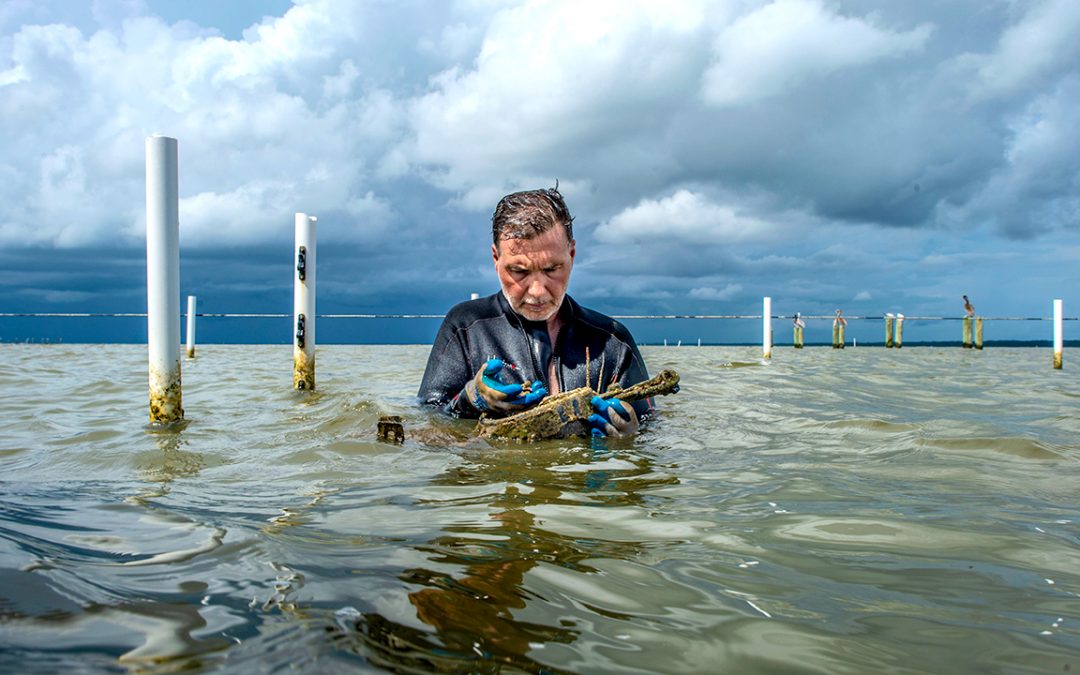
Auburn University marine scientist Bill Walton, one of the driving forces behind the Gulf Coast’s up-and-coming off-bottom oyster-farming industry, has landed a $456,646 federal grant to help ensure that farmed oysters bound for the premium half-shell market are as safe as possible for human consumption.
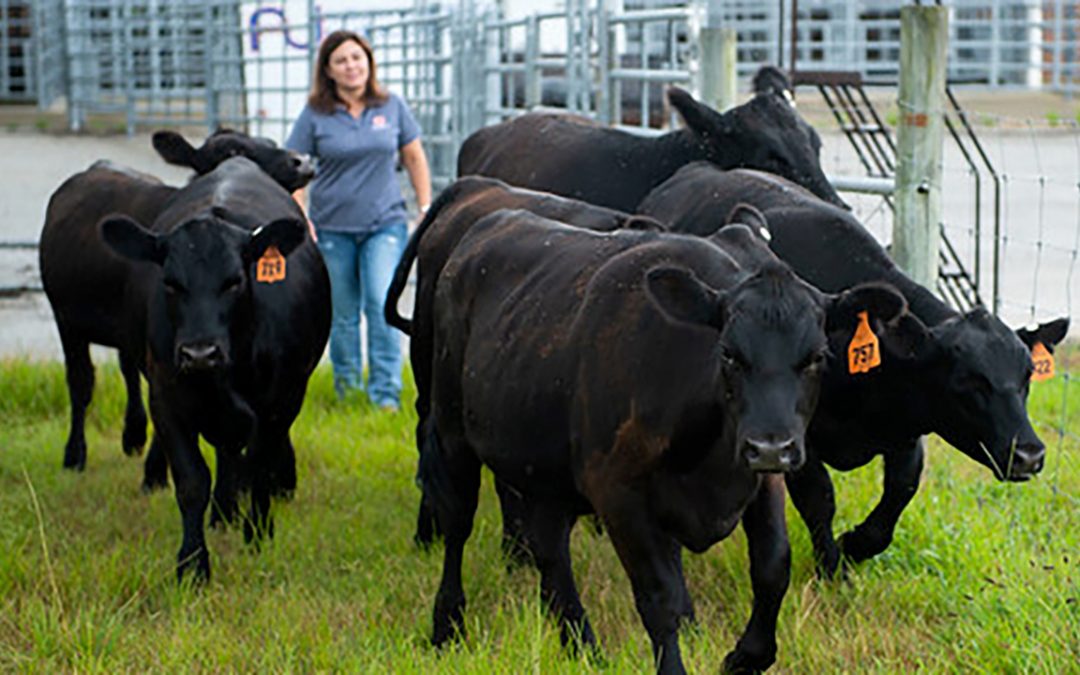
The local foods movement continues to grow in the U.S., with an increasing number of consumers wanting to know where their food comes from, connecting with the families producing it, and buying products at farmers markets and through community-supported agriculture programs.
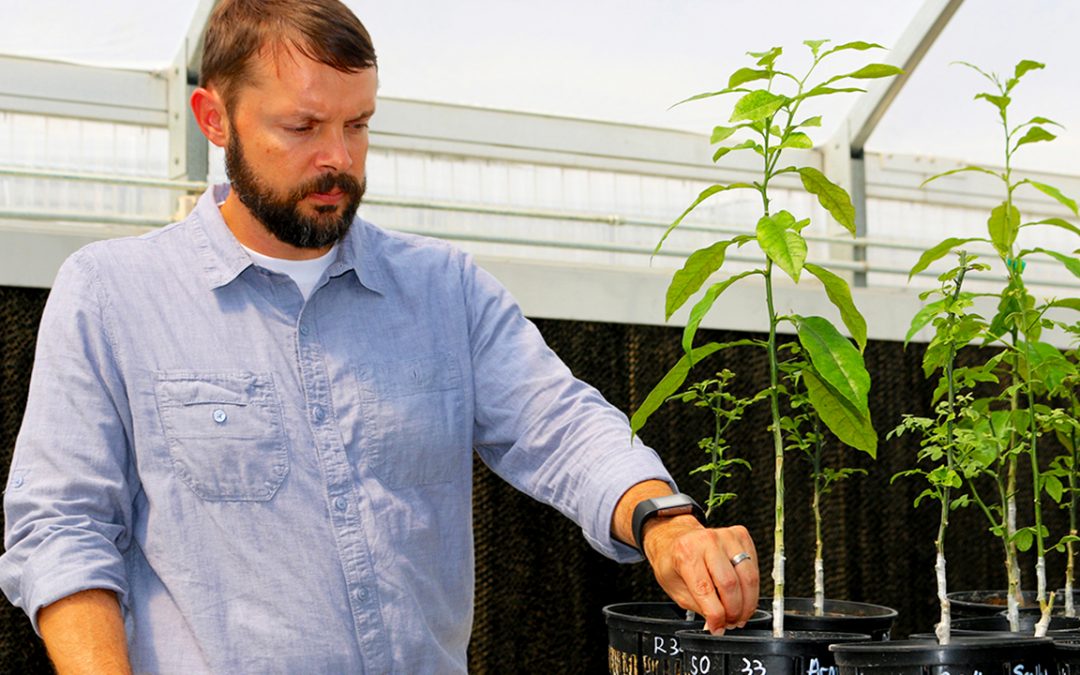
Cost and efficiency are high on the list of concerns for Alabama farmers and equally high on the list of priorities for Auburn University researchers.
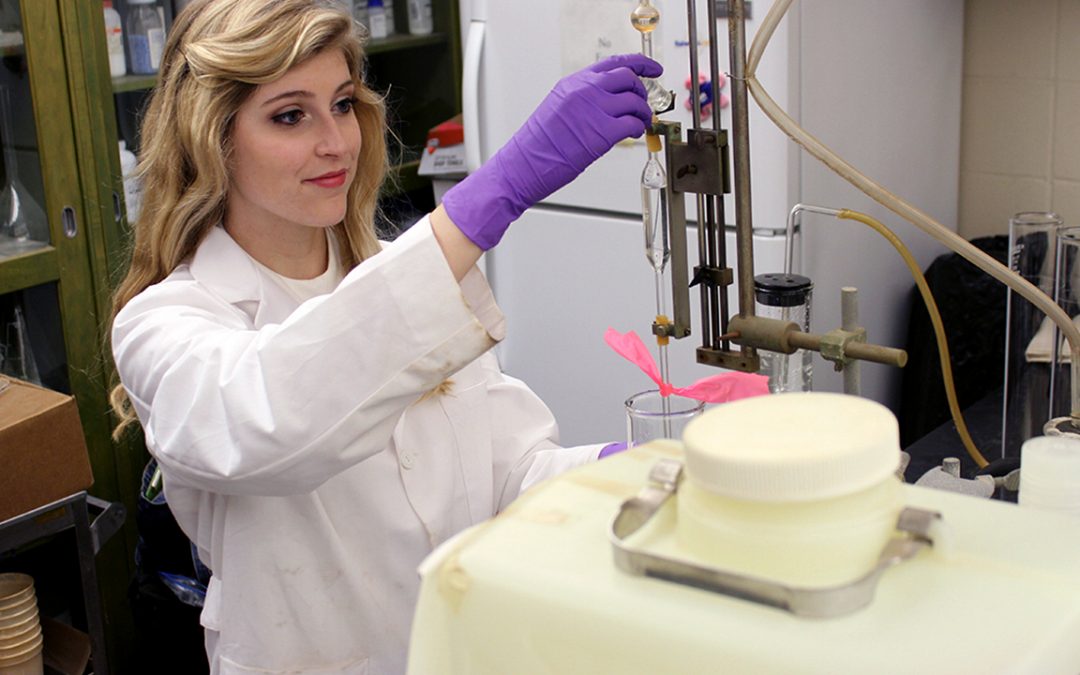
College students who participate in hands-on, faculty-mentored research en route to their bachelor’s degrees cite multiple personal and professional benefits the experience delivers, from strengthening their time-management, critical-thinking and communication skills to developing one-on-one connections with distinguished faculty.
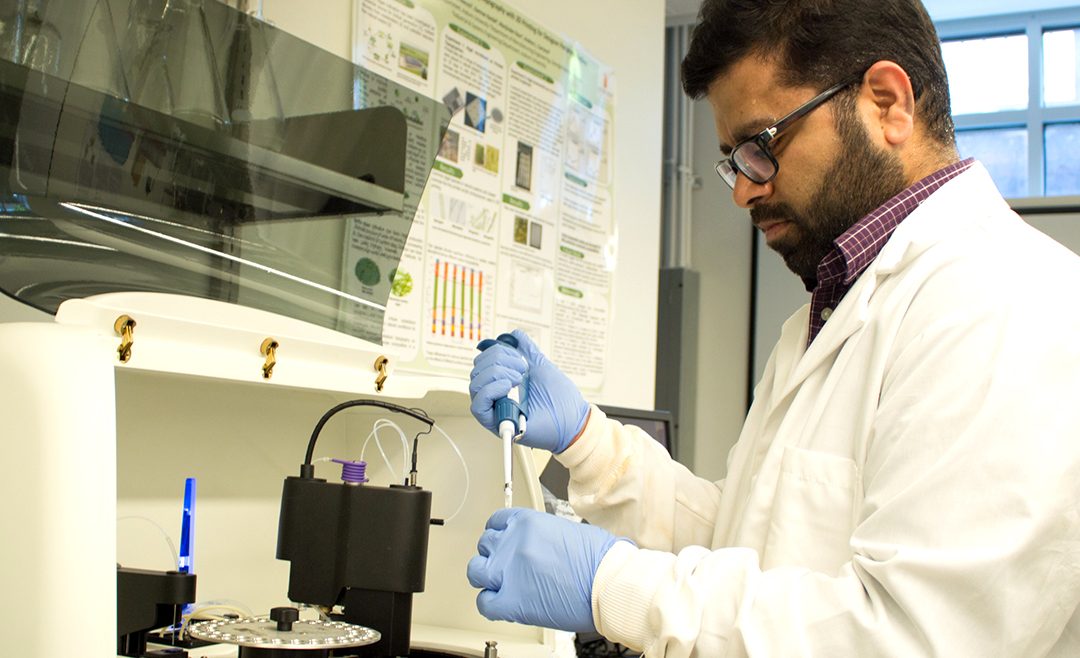
The poultry industry in Alabama contributes more than $15 billion to the state’s economy each year, but along with the revenue and jobs, it also produces about 1.8 million tons of waste, or litter, annually.
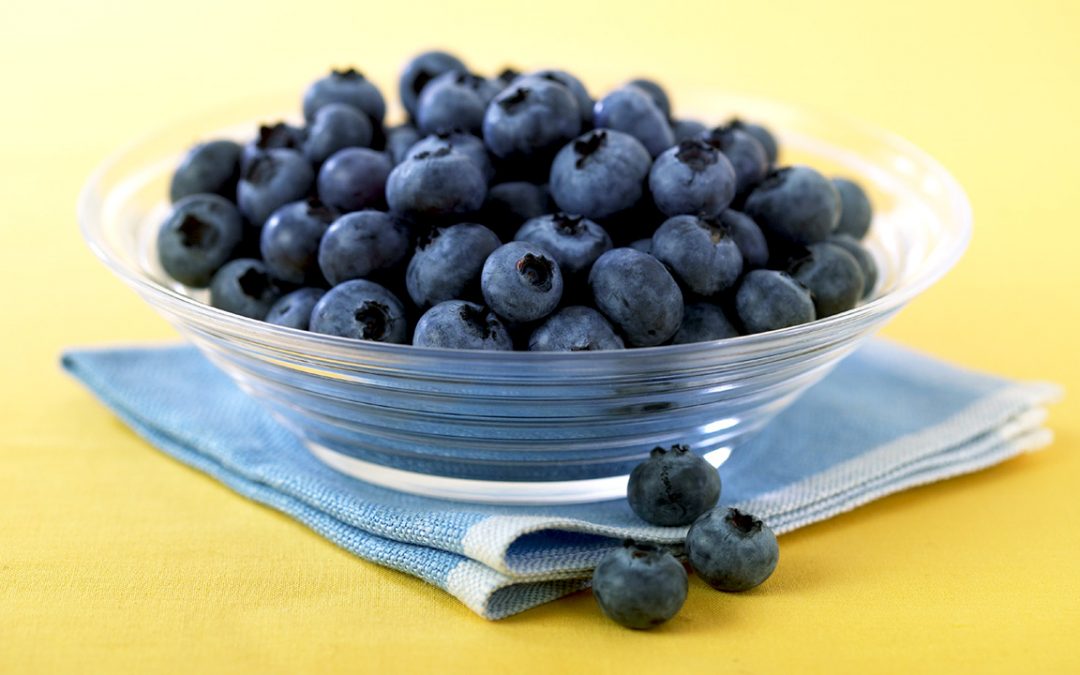
In a move aimed at advancing and promoting Alabama’s berry and grape industries, Auburn University has joined the multistate Southern Region Small Fruit Consortium, a collaborative initiative that brings together producers, researchers and extension specialists to strengthen the South’s small-fruit industries.
Longleaf pine ecosystems may be the key to creating more drought-resilient forests, according to a study that Lisa Samuelson, Alabama Agricultural Experiment Station researcher and Alumni Professor in Auburn’s School of Forestry and Wildlife Sciences, is conducting.
When Columbia University biophysicist Joachim Frank was awarded the 2017 Nobel Prize in Chemistry this fall, Auburn University researchers Jacek and Iwona Wower did a high-five—figuratively, if not literally.
Auburn researchers will use an almost $321,000 U.S. Department of Agriculture grant to field-test a novel vaccine that would effectively and economically control one of the most serious bacterial infections in the aquaculture industry today.
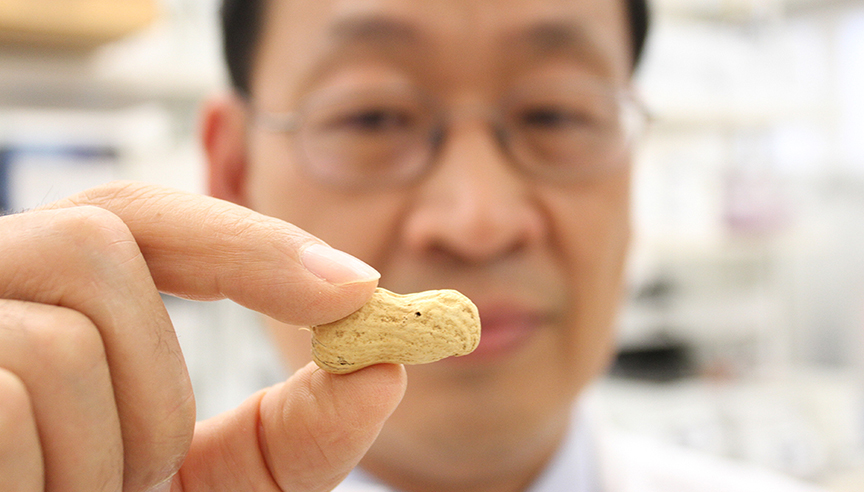
Auburn University might be relatively new to the peanut breeding business, but its just-released runner peanut variety is already winning accolades for its high yields, resistance to disease and healthy traits. The new release is the product of a peanut breeding program operated jointly by the Department of Crop, Soil and Environmental Sciences and USDA’s National Peanut Research Lab.
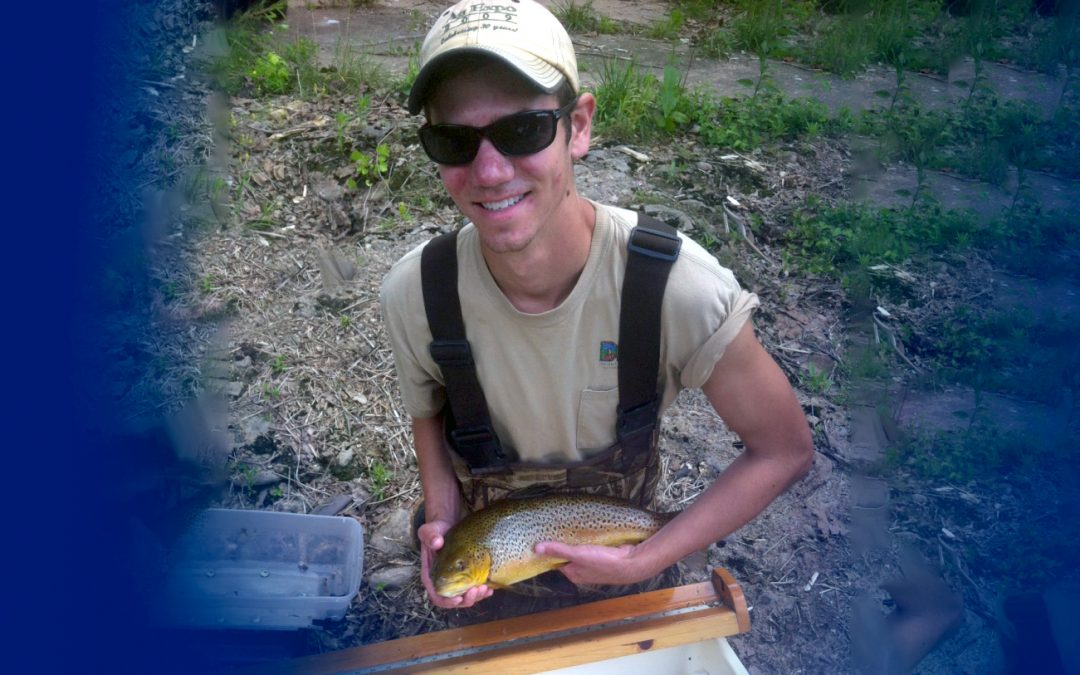
Ben Staton is a graduate assistant pursuing a degree in fisheries management. Ben’s research is focused on Chinook salmon stocks in western Alaska. He is using long-term data sets to create and test models that address questions and make predictions relating to the...
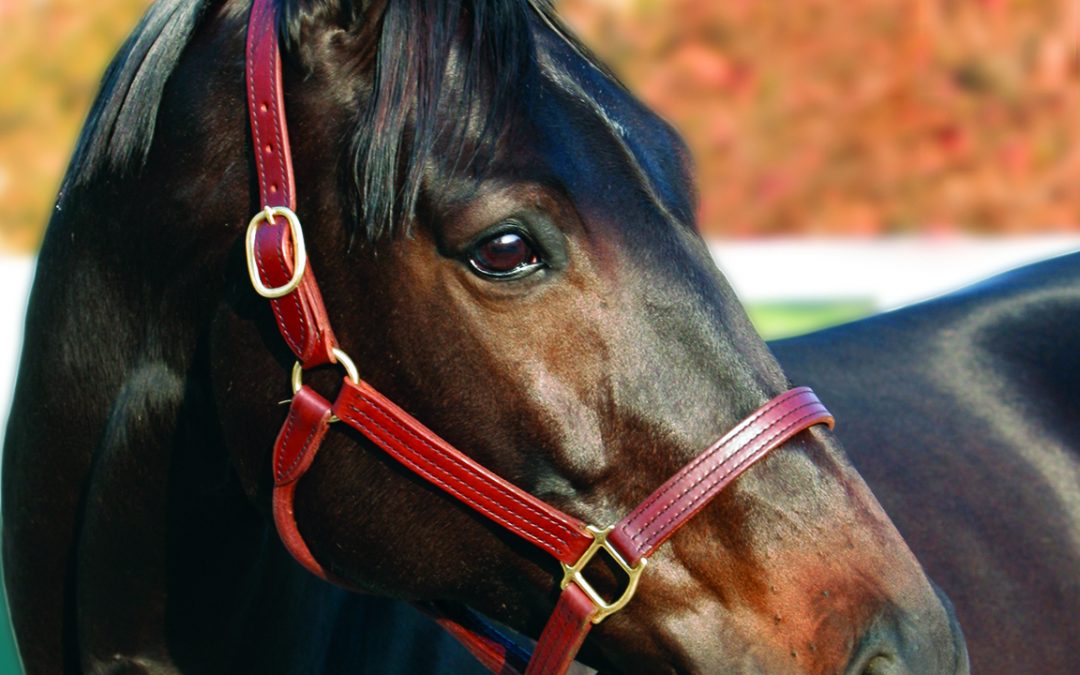
Horses which have been used heavily all summer, but will be used sparingly during fall and winter need to be properly conditioned for this change. Horses at maintenance or doing light work have reduced energy requirements from hard working horses, and there is no need...

A team of university scientists from across the U.S. is waging a nationwide offensive against a dastardly weed that the turfgrass industry in Alabama and beyond deems Enemy No. 1.

The College of Agriculture held its inaugural “ThanksforGiving to AU research” breakfast on Nov. 20 to recognize visiting scholars and postdoctoral researchers and their contributions to the college.

Auburn University aquatic ecologist Alan Wilson and a team of biological, molecular and environmental scientists from three other U.S. institutions are taking on toxic cyanobacteria, also called blue-green algae or pond scum, in a five-year, $2 million National Science Foundation project.

Auburn University’s Board of Trustees has cleared the way for completion of the multi-unit Charles C. Miller Jr. Poultry Research and Education Center on the north Auburn campus, beginning with construction of an 18,800-square-foot poultry processing plant on the 30-acre site.
The project will create a bio-based fuel additive that can be blended with diesel fuel to reduce soot and greenhouse gas emissions and yield cleaner engine operation in cold-weather conditions.

Auburn University’s Aquaponics Working Group has a new vision for U.S. aquaculture, one that includes far more predictability and efficiency than today’s timeworn models of commercial fish production.

A 32-foot raw bar boasting 5,000 premium farm-raised oysters drew hundreds of oyster lovers to Ag Heritage Park earlier this year for the 2018 Alabama Oyster Social. In addition to emptying all 5,000 half shells, attendees also raised $45,000 to support Auburn University’s Shellfish Lab at Dauphin Island and, in turn, Alabama oyster farmers.

Auburn University marine scientist Bill Walton, one of the driving forces behind the Gulf Coast’s up-and-coming off-bottom oyster-farming industry, has landed a $456,646 federal grant to help ensure that farmed oysters bound for the premium half-shell market are as safe as possible for human consumption.

The local foods movement continues to grow in the U.S., with an increasing number of consumers wanting to know where their food comes from, connecting with the families producing it, and buying products at farmers markets and through community-supported agriculture programs.

Cost and efficiency are high on the list of concerns for Alabama farmers and equally high on the list of priorities for Auburn University researchers.

College students who participate in hands-on, faculty-mentored research en route to their bachelor’s degrees cite multiple personal and professional benefits the experience delivers, from strengthening their time-management, critical-thinking and communication skills to developing one-on-one connections with distinguished faculty.

The poultry industry in Alabama contributes more than $15 billion to the state’s economy each year, but along with the revenue and jobs, it also produces about 1.8 million tons of waste, or litter, annually.

In a move aimed at advancing and promoting Alabama’s berry and grape industries, Auburn University has joined the multistate Southern Region Small Fruit Consortium, a collaborative initiative that brings together producers, researchers and extension specialists to strengthen the South’s small-fruit industries.
Longleaf pine ecosystems may be the key to creating more drought-resilient forests, according to a study that Lisa Samuelson, Alabama Agricultural Experiment Station researcher and Alumni Professor in Auburn’s School of Forestry and Wildlife Sciences, is conducting.
When Columbia University biophysicist Joachim Frank was awarded the 2017 Nobel Prize in Chemistry this fall, Auburn University researchers Jacek and Iwona Wower did a high-five—figuratively, if not literally.
Auburn researchers will use an almost $321,000 U.S. Department of Agriculture grant to field-test a novel vaccine that would effectively and economically control one of the most serious bacterial infections in the aquaculture industry today.

Auburn University might be relatively new to the peanut breeding business, but its just-released runner peanut variety is already winning accolades for its high yields, resistance to disease and healthy traits. The new release is the product of a peanut breeding program operated jointly by the Department of Crop, Soil and Environmental Sciences and USDA’s National Peanut Research Lab.

Ben Staton is a graduate assistant pursuing a degree in fisheries management. Ben’s research is focused on Chinook salmon stocks in western Alaska. He is using long-term data sets to create and test models that address questions and make predictions relating to the...

Horses which have been used heavily all summer, but will be used sparingly during fall and winter need to be properly conditioned for this change. Horses at maintenance or doing light work have reduced energy requirements from hard working horses, and there is no need...